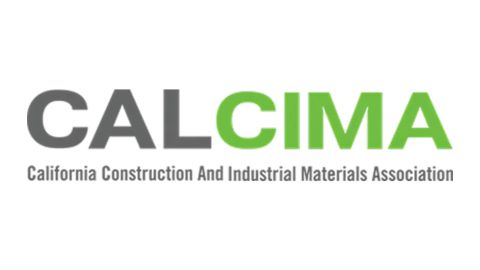CDE is delivering phosphate solutions to produce fertilisers that will sustain the world’s growing population in line with the company’s renewed purpose: championing sustainability to create A New World of Resource.
Centrex Metals Ltd recently announced an investment in a state-of-the-art CDE wet processing solution to create a concentrate from the company’s Ardmore Phosphate Rock Project in North West Queensland. This is a timely investment for the company considering its commitment to providing an alternative to the high level of imports of fertilisers – around 1 million tonnes per year – mainly from Morocco. A major concern for the industry, fertilisers produced from phosphate ores are a common vehicle for toxic cadmium pollution, which can impact drinking water sources. Ardmore Phosphate Rock Project is one of the only suppliers on the market that delivers products that contain almost no cadmium. The stakes, as well as the rewards, are therefore high for Centrex and CDE is delighted to be providing a bespoke wet processing system for this prestigious project.
Essential Life Source
Phosphate rock is the main source of phosphorus, a key component of human DNA and the very source of all that is ‘life’. There is no substitute for phosphorus in agriculture as it is essential for all aspects of the healthy development of plants. When the soil is not able to provide enough phosphorus to crops, the application of phosphate-based fertilisers becomes vital. It is, therefore, no surprise that 90% of the world’s production of phosphate rock concentrate is dedicated to the production of fertilisers. In keeping with the CDE “New World of Resource” ethos, the Ardmore wet processing solution will contribute to the production of fertilisers and the sustainability of the world’s future food sources.
Centrex Managing Director and CEO Ben Hammond said: “The Ardmore site is one of the few remaining undeveloped phosphate rock deposits in the world, and since acquiring the mine in 2017 we have focused on producing premium quality phosphate rock concentrate to deliver this vital commodity to local fertiliser plants in Australia and New Zealand as well as across Asia, which all currently rely on imports. Ardmore’s product will be railed to the Port of Townsville for shipping, strategically located close to our target markets providing a large freight advantage over existing suppliers.
“Following a thorough feasibility study, we expect to produce 800,000 wet tonnes per annum of phosphate rock concentrate at the target shipping level of 3% moisture.
“To deliver this target over the estimated 10-year mine life, we required a reliable and resilient wet processing solution to remove the fine gangue after the high-grade ore has been crushed to meet customer sizing specifications. Our research showed that CDE could deliver a modular-solution that fully met our requirements.”
The CDE start-up phosphate washing plant at Ardmore will be commissioned in the first half of 2019 and will provide trial shipments to customers to secure long-term contracts, before moving to a full-scale production in 2021.
To ensure perfect results, the pilot plant will wash, scrub and de-slime a free-digging ore material to produce a target premium 35% P2O5 and ultra-low cadmium phosphate rock concentrate ready for the manufacturing of phosphoric acid or single superphosphate. In addition, CDE will provide a water recycling system comprising its innovative AquaCycle technology to ensure maximum water recovery in this challenging remote location.
The Process
The shallow free-digging phosphate ore is mined in strips and then deposited in the CDE hopper after crushing. From here it is screened, and water is added to make a slurry to eliminate larger particles which are recirculated, before being sent to the beneficiation process. This two-stage process consists of twin EvoWash units with bespoke hydrocyclone clusters, separated by a scrubbing stage using CDE’s ShearClean attrition cell technology. The first cyclone cluster performs a cut of 38 micron to eliminate contaminants with the underflow being dewatered further on a screen prior to the attrition stage which further liberates those contaminants adhered to the ore. The second stage EvoWash then performs a further 38 micron cut and dewaters to approximately 10% moisture before being stockpiled. The stockpiled product is then ready to be converted into phosphorus.
Adam Holland - Head of Mining - CDE MetaAdam Holland, Head of Mining at CDE, explains the benefits of the CDE solution: “This 70 tonne-per-hour solution, created in collaboration with Centrex is part of a two-phase project. The start-up plant comprises the first phase and has been carefully designed using CDE’s unique modular offering in order to facilitate the simple and cost-effective transition to a 140 tph plant in phase 2 for full-scale operations.
“CDE’s modular approach solved many of the challenges presented by the remote location of the deposit and provided the flexibility which enables no loss of that initial investment when moving from trial shipments to full-scale plant. This was essential for Centrex Metals to gain the return on investment required to make the project viable”.
Hydrocyclone Perfection
A precursor in cyclone technology since 1992, CDE has designed and delivered almost 2,000 projects globally to increase the efficiency of mineral washing operations. The success of the company has been down to its capability to address the efficiency issues met when using traditional washing technologies.
Cyclone technology involves the use of centrifugal force to classify materials rather than gravity. After extensive testing to determine the proportion of silt material to be removed from the raw feed, the specification of a cyclone set up is precisely calculated to ensure that each client’s new wet processing system provides unrivalled control over silt cut points. The silt exits the overflow at the top of the cyclone with the wastewater, to be sent to settling ponds, or in Ardmore’s case, to a water management system. The sand fraction exits the cyclone at the bottom, ready for dewatering and stockpiling. As a result of retaining all quality fines available in the raw feed thanks to >95% separation efficiency, the space required for tailing dams is significantly reduced, which benefits both the customer and the environment. Product yield is maximised and operational costs reduced.
Attrition is key
Attrition cells are the key to efficient contaminant removal, with the unique startup sequence of the CDE ShearClean designed to provide maximum efficiency with minimal power requirement. Material on material friction from opposing paddles provides optimal scrubbing action, maximising product yield from the deposit and ensuring the most effective extraction of natural reserves. Capitalising on high specific capacity, the CDE ShearClean attrition cell requires significantly less power than a traditional design, attributing to lower running costs and maximum return on investment. This was a critical factor in the decision-making process for Centrex Metals, with OPEX control paramount in the remote location of the Ardmore Phosphate Rock Project.
Water Matters
Wastewater from the plant is processed by the CDE AquaCycle thickener which recovers up to 90% of the water for recirculation around the washing plant. The plant requires 400m3 per hour of water for its operation and the introduction of the AquaCycle ensures that the top-up water supply is limited to less than 40m3 per hour.
The CDE Philosophy
To ensure that Centrex will obtain an optimal yield from its Ardmore deposit, CDE deployed its tried-and-tested ‘Customer for Life’ method. Following the testing of the contents of the Ardmore site material at CDE’s laboratories in Northern Ireland, the company was able to discuss the most appropriate wet processing options with Centrex. Through a process of co-creation with the customer, facilitated over a number of collaborative design workshops, the solution developed by CDE includes modular products from its mining equipment range, which perform in synergy to produce maximal results whilst saving water and energy.
Holland concludes: “CDE’s ‘New World of Resource’ ethos runs through every strand of the business, embedding a commitment to reduce waste as well as remediate and create value through innovative thinking. Not only do CDE’s patented technologies allow for clean and energy-saving materials wet processing operations, but the company’s innovative approach to waste management also opens up a new world of possibilities that involve the transformation of waste ores into valuable high-grade products whilst ultimately eliminating the need for settling ponds and tailings dams.
“The Ardmore Phosphate Rock Project and our partnership with Centrex metals is an important step in CDE Meta’s goal to bring innovation and improved efficiency to mining processes across a range of minerals”.





